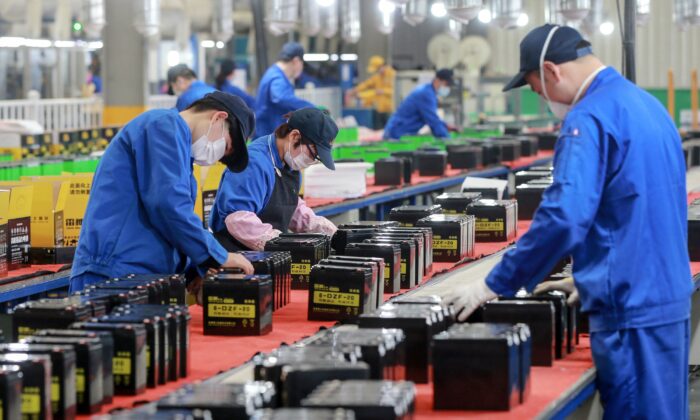Commentary
In an interview with Time magazine on May 28, U.S. President Joe Biden expressed his belief that China’s economy is on the verge of collapse. He defended U.S. tariffs on Chinese products and criticized the Chinese Communist Party’s Belt and Road Initiative (BRI) for causing issues in participating countries, particularly in Africa.
Experts on China who appeared on a recent episode of “Pinnacle View” shared their views, suggesting that President Biden’s statements likely reflect not only his personal opinions but also the U.S. government’s perspective on China’s current situation.
‘Biden Crossed CCP’s Many Red Lines’
Independent TV producer Li Jun remarked on “Pinnacle View” that President Biden’s comments about China in the Time magazine interview may be the harshest speech by a U.S. president in the past two decades.
According to Li, President Biden crossed several red lines set by Chinese leader Xi Jinping.
He stated that Biden’s remarks about China’s economy being on the brink, calling the BRI a “nuisance graveyard initiative,” accusing the CCP of interfering in U.S. elections, and suggesting possible U.S. military intervention if China attacks Taiwan all challenged Xi Jinping’s protected boundaries.
Li believes that President Biden distrusts economic data coming from China.
“Last year, Biden hinted at China’s economic troubles, and now, the CCP’s response to his recent comments has been strong, with Chinese state media implying that the U.S. economy may collapse first,” Li added.
China’s BRI
Current affairs commentator Heng He, based in the U.S., highlighted the implications of the BRI on global stability and U.S. interests, stating that the initiative poses a serious threat if countries fall into economic distress or debt due to it.
He described the BRI as a means for China to export surplus industries, like infrastructure materials, to developing nations.
Heng pointed out that many countries faced problems after accepting Chinese investments, including debt repayment issues, unwanted construction projects, and increased corruption.
He suggested that President Biden’s tariffs on Chinese electric cars were a preemptive measure to protect U.S. interests amid potential tariff increases by Europe.
Overproduction and Possible War Preparation
In his Time magazine interview, President Biden questioned if anyone would want to trade places with Xi Jinping, hinting at China’s economic difficulties and the personal pressure on its leader.
Guo Jun, president of The Epoch Times’ Hong Kong edition, found Biden’s statement intriguing, implying that China’s economic crisis and autocratic system place immense pressure on Xi Jinping as a leader.
In the history of China, there are numerous tales of emperors expressing their desire not to be reborn as an emperor in their next life during times of social unrest and the collapse of the country. They wished to be born into an ordinary family rather than into an imperial one. While the power of the emperor may seem beneficial in times of stability, it becomes a perilous position during chaotic times. Ms. Guo believes that when Biden mentions the current situation in China being very bad, he is referring to the main economic issues of overproduction and insufficient domestic demand.
Despite these challenges, the Chinese government continues to provide subsidies to producers and enterprises, further exacerbating the imbalance in the economy. This imbalance is akin to a cyclical system, where production must be balanced by consumption to maintain a healthy flow of capital. U.S. Treasury Secretary Janet Yellen, in her visit to China, suggested increasing residents’ incomes to boost domestic demand. Many Chinese economists also recommend subsidizing consumers rather than enterprises to stimulate consumption, but Beijing authorities remain focused on enterprise subsidies.
One example of this imbalance is the shopping platform Temu, where Chinese-made goods are sold at remarkably low prices, with some sellers operating at a loss. The rampant production in China and the dumping of goods in other countries have raised concerns globally. Ms. Guo emphasizes that the CCP’s solution to the economic imbalance is to further increase production, leading many to speculate that they may be preparing for potential shortages or even a future war.
Mr. Heng concurs with this analysis, predicting a shift towards a more planned economy in China’s future. This move towards a supply-side system aligns with the structural changes within the CCP regime. The motives behind this shift are uncertain, with possibilities ranging from a belief that Deng Xiaoping’s economic reforms are unsustainable to preparation for wartime conditions. The symptoms of both scenarios are similar, but the underlying motivations differ. The planned economy model is believed to better handle a state of war if it were to occur.
The views expressed in this article are the opinions of the author and may not necessarily reflect those of The Epoch Times.
Source link





